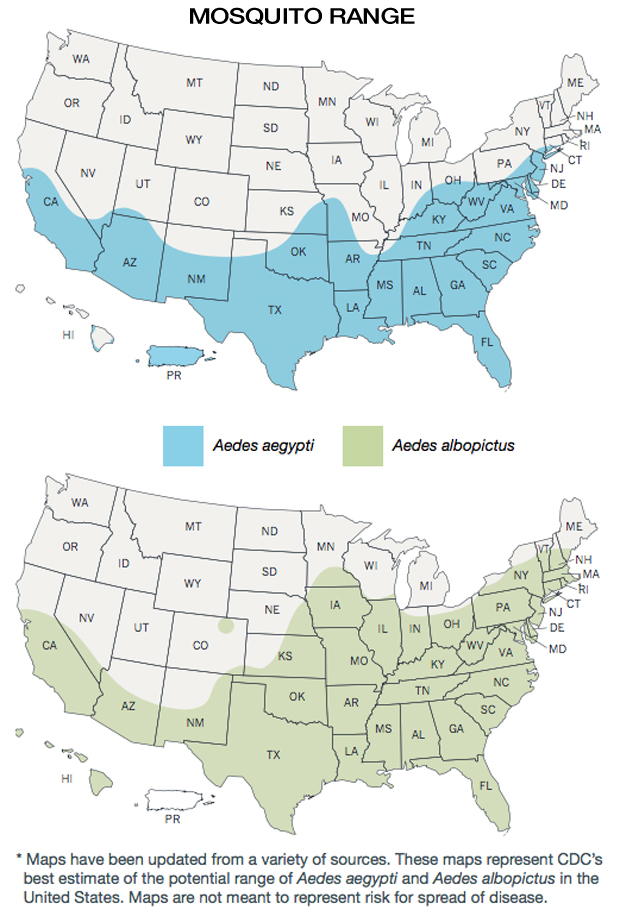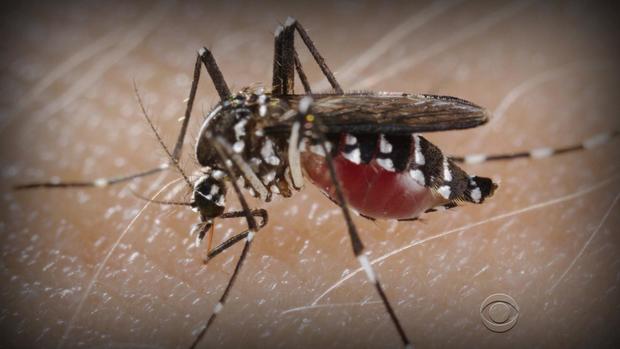CDC warns more U.S. cities could face Zika threat
The mosquitoes that can transmit the Zika virus may live in a broader swath of the U.S. than previously thought -- but that doesn't mean they'll cause disease here, federal health officials said Wednesday.
The Centers for Disease Control and Prevention posted new maps of the estimated range of Aedes aegypti mosquitoes, and a related cousin, Aedes albopictus, on its website. Instead of just being in the southern part of the country, the new maps show the range for Aedes aegypti could extend into parts of the Midwest and Northeast.
Aedes aegypti is known to spread Zika virus in other countries. Many scientists believe Aedes albopictus -- also known as the Asian tiger mosquito -- may be capable of transmitting the virus, too.
Previous maps were about a dozen years old, and CDC officials describe the new ones as a best understanding of where the mosquitoes have been seen recently or previously -- even though it's not clear if very many actually live in every spot shaded on the map. It's possible the range increased, or just that scientists have done a better job looking for them.
CDC Director Tom Frieden said the implication is "there are more places at risk than realize they're at risk, given where the mosquito is likely to be present."
To date, there have been more than 270 U.S. cases of Zika -- all related to travel abroad -- but that may change as the weather begins to warm.
"Mosquito season is coming. So when May, June, July, August, September happen, mosquitoes are going to start to thrive and we're going to be in trouble with regard to Zika," CBS News medical contributor Dr. David Agus told "CBS This Morning."
The biggest threat associated with the virus is to pregnant women and their unborn children, as growing evidence shows it is strongly linked to microcephaly, a birth defect that results in babies being born with abnormally small heads and often brain damage.
"The main concern is that if a [pregnant] woman is bitten by a mosquito that has the Zika virus, that baby while it's developing may not have a normal brain," Agus said.
But experts believe the risk from mosquitoes is not as great in the U.S. as in some other countries. Even if the mosquitoes live in certain areas, they would have to bite an already infected person in order to spread Zika, or related viruses, to others.
And unlike many Zika-plagued areas, the mainland U.S. has air conditioning and screens to keep the insects out of homes where they commonly live. That's why the website says: The "maps are not meant to represent risk for spread of disease."
Zika is spreading rapidly through Latin America. While most people experience mild or no symptoms, Zika is suspected of causing babies to be born with abnormally small heads and underlying brain damage, after a rash of such cases in Brazil.

